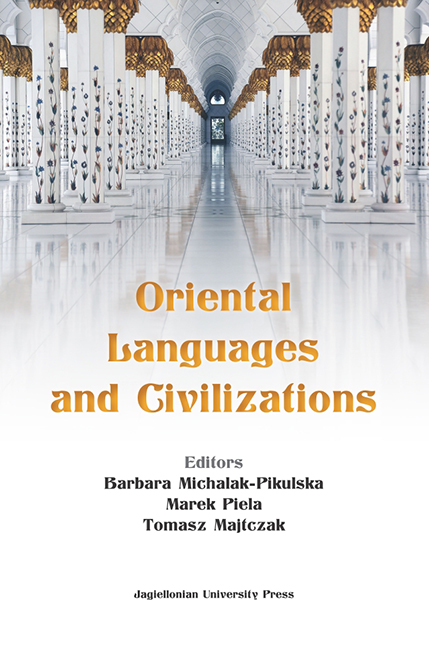Andrzej Gawroński and his forgotten translations ofthe songs from Aśvaghoṣa’s Buddhacarita andSaundarananda
Published online by Cambridge University Press: 06 November 2021
Summary
Abstract
The article concerns one of the most outstanding Polishorientalists Andrzej Gawroński who is mostly knownas a multi-linguist and an eminent scholar. However,being a man of many talents Gawroński was also agifted translator and the memory of this form of hisactivity is not so widely widespread. In the articleI will provide information on Gawroński'stranslations of the chosen songs of Aśvaghoṣa asincluded in his works Buddhacarita and Saundarananda.
Keywords: Andrzej Gawroński, translator, Aśvaghoṣa,Buddhacarita,Saundarananda
Andrzej Gawroński (1885–1927) was definitely anextraordinary personality among the Europeanorientalists. He was one of the most outstandingPolish scholars of the turn of the 19thand 20th centuries. Already when he was astudent at Lwów University he attended such a widevariety of lectures that it gave him the sound basisfor his future research. His teachers were, amongothers, professor Kazimierz Twardowski, anoutstanding philosopher and logician, professorStanisław Józef Witkowski, a great scholar ofclassical studies, professor Antoni Kalina, whosedomain was Slavic philology, professor Roman Pilatand professor Wilhelm Adolf Bruchnalski, specialistsin the field of Polish philology, professor EdwardPorębowicz whose domain was French philology and,what was important for his main future work as anindologist, professor Gustaw Gerson Blatt. Blatt wasa good specialist on general linguistics,comparative Indo-European grammar and Sanskrit. Alsoin Lwów Gawroński took courses on Armenian andArabic culture, on general history and on thehistory of art (Willman- Grabowska, 1957, p. 243).After his studies in Lwów Gawroński went to Leipzigwhere he continued them under the guidance of one ofthe most famous linguists, indologists andSanskritologists of these times namely professorErnst Windisch. Soon he obtained his doctor degreesumma cum laude forthe work on linguistics based on the analysis of twoSanskrit texts. The title of the thesis was Sprachliche Untersuchungen überdas Mṛcchakaṭika und Daśakumāracarita. Already in thiswork, which was the fruit of his comparativestudies, Gawroński used the stylometric method whichwas not yet known or used among the circles of theEuropean orientalists. Gawroński widened the methodas known at his times in Europe by considering forhis comparisons not only the vocabulary used in theanalyzed texts but also the grammar forms used inthem.
- Type
- Chapter
- Information
- Oriental Languages and Civilizations , pp. 275 - 284Publisher: Jagiellonian University PressPrint publication year: 2022

